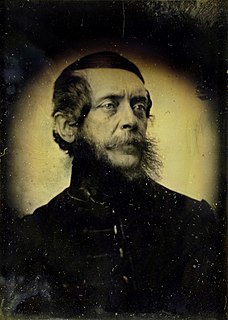A Quote by Victor Hugo
His universal compassion was due less to natural instinct, than to a profound conviction, a sum of thoughts that in the course of living had filtered through to his heart: for in the nature of man, as in rock, there may be channels hollowed by the dropping of water, and these can never be destroyed.
Related Quotes
Military tactics are like unto water; for water in its natural course runs away from high places and hastens downwards... Water shapes its course according to the nature of the ground over which it flows; the soldier works out his victory in relation to the foe whom he is facing. Therefore, just as water retains no constant shape, so in warfare there are no constant conditions. He who can modify his tactics in relation to his opponent and thereby succeed in winning, may be called a heaven-born captain.
It is true that water will flow indifferently to east and west, but will it flow equally well up and down? Human nature is disposed toward goodness, just as water tends to flow downwards. There is no water but flows downwards, and no man but shows his tendency to be good. Now, by striking water hard, you may splash it higher than your forehead, and by damming it, you may make it go uphill. But, is that the nature of water? It is external force that causes it to do so. Likewise, if a man is made to do what is not good, his nature is being similarly forced.
The whole gospel of Karl Marx can be summed up in a single sentence: Hate the man who is better off than you are. Never under any circumstances admit that his success may be due to his own efforts, to the productive contribution he has made to the whole community. Always attribute his success to the exploitation, the cheating, the more or less open robbery of others. Never under any circumstances admit that your own failure may be owing to your own weakness, or that the failure of anyone else may be due to his own defects - his laziness, incompetence, improvidence, or stupidity.
There are many who say more than the truth on some occasions, and balance the account with their consciences by saying less than the truth on others. But the fact is that they are in both instances as fraudulant as he would be that exacted more than his due from his debtors, and paid less than their due to his creditors.
We must not only protect the country side and save it from destruction, we must restore what has been destroyed and salvage the beauty and charm of our cities ... Once our natural splendor is destroyed, it can never be recaptured. And once man can no longer walk with beauty or wonder at nature, his spirit will wither and his sustenance be wasted.
The philosopher is like a man fasting in the midst of universal intoxication. He alone perceives the illusion of which all creatures are the willing playthings; he is less duped than his neighbor by his own nature. He judges more sanely, he sees things as they are. It is in this that his liberty consists - in the ability to see clearly and soberly, in the power of mental record.
One of man's important mistakes, one which must be remembered, is his illusion in regard to his I. Man such as we know him, the 'man-machine,' the man who cannot 'do,' and with whom and through whom everything 'happens,' cannot have a permanent and single I. His I changes as quickly as his thoughts, feelings and moods, and he makes a profound mistake in considering himself always one and the same person; in reality he is always a different person, not the one he was a moment ago.
Workers for Christ are never to think, much less to speak, of failure in their work. The Lord Jesus is our efficiency in all things; His Spirit is to be our inspiration; and as we place ourselves in His hands, to be channels of light, our means of doing good will never be exhausted. We may draw upon His fulness, and receive of that grace which has no limit.






































